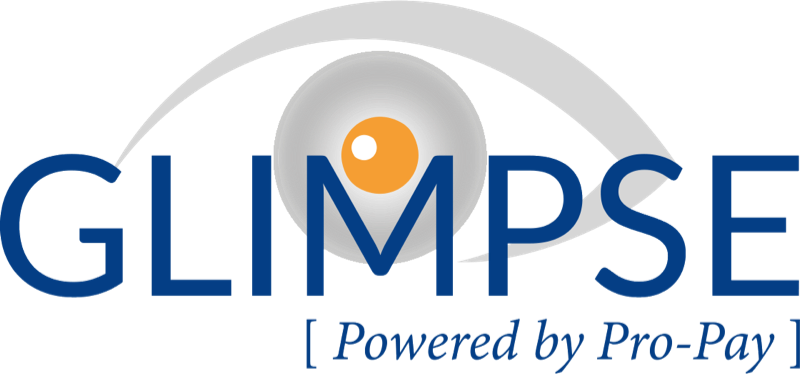Sector agreement 2023 - 2024 for joint industrial committee 209

The social dialogue in Belgium is organized on 3 levels: inter-sectoral/federal, sectoral and company level. Over the past months, the wage norm and several employment measures which serve as the basis for the negotiations on a sectoral level, have been determined on a federal and inter-sectoral level.
Within JIC 209 these negotiations have been finalized, which resulted in a sectoral agreement for the years 2023 – 2024. We would like to provide you hereby with an overview of the most important decisions in your sector of industry.
Purchasing power premium
The provisions regarding the purchasing power premium, are in principle limited to the scaled and scalable white collar workers. The scope of application can be extended to the non-scaled and the non-scalable white collar workers according to a specific procedure depending on whether or not the company has a labour union delegation.
Below we discuss the conditions, amounts, granting modalities and calculation modalities of the purchasing power premium. Please verify these with your accountant to know whether your company should grant the purchasing power premium.
1. Eligibility conditions and amounts
Companies that have made high or exceptionally high profits in 2022 must grant a one-time purchasing power premium to their employees in the form of consumption vouchers. The consumption vouchers are valid until 31 December 2024 and can be used to purchase food or products and services of an ecological nature (similar to meal vouchers and eco vouchers).
High profit - A company has achieved a high profit in 2022 if the “ROA” based on the annual account of the financial year 2022 is 3% or more. ROA means Return on Assets, being the operating profit (code 9901 of annual account) divided by the total balance sheet (code 10/49 or 20/58).
Companies with high profits, should grant the following purchasing power premium:
- € 200 if the ROA in 2022 is 3% or more (minimum condition);
- € 350 if the operating profit (code 9901) of the annual account of the financial year 2022 is at least 15% higher than the average operating profit (code 9901) for the financial years 2018-2019-2020-2021;
- € 500 if the operating profit (code 9901) of the annual account of the financial year 2022 is at least 25% higher than the average operating profit (code 9901) for the financial years 2018-2019-2020-2021;
Exceptionally high profit - A company has achieved an exceptionally high profit in 2022 if:
- The ROA based on the annual account of financial year 2022 is 3% or more.
- The operating profit (code 9901) of the annual account of the financial year 2022 must be at least 50% higher than the average operating profit (code 9901) for the financial years 2018-2019-2020-2021.
In this case, the purchasing power premium is € 750.
Cap - The total cost of all employees' purchasing power premiums cannot exceed 33% of the company's operating profit (code 9901) for the financial year 2022. If necessary, the amount should be prorated.
2. Calculation modalities
The parameters (ROA and code 9901) are checked at the level of the annual account (legal entity).
In calculating the average, an operating loss in a given year equals to 0 in the numerator and is counted as a year in the denominator. Example: 2 years with operating profit (2018: +100 and 2019: +100) and 2 years with operating loss (2020: -100 and 2021: -100) gives the following result (100 + 100 + 0 + 0) /4 = 50.
When the financial year does not coincide with the calendar year, the annual account of the financial year with the most months in calendar year 2022 is taken into account (and likewise for other financial years in the reference period 2018-2021).
When the financial year ends on 30 June, the annual account of the financial year ending in 2022 is taken into account (and likewise for other financial years in the reference period 2018-2021).
When a financial year has more than 12 months, it is assimilated to a 12-month financial year in the calculation method (reference period for applying the amounts is then 4 financial years prior to the 2022 financial year).
Where annual accounts are not available for each year of the 2018-2021 period, the average is calculated based on the available annual accounts.
3. Payment modalities
The payment of the purchasing power premium will be done no later than 31 December 2023.
Employees must be employed for at least 1 month on the date of payment, and they must also be employed on the date of payment itself.
The amounts are granted pro rata to the employee's average employment in the period between 1 October 2022 and 30 September 2023.
An employee who entered into service after the above reference period (between 1 October 2022 and 30 September 2023), has at least one month of seniority and is still employed at the time of payment of the purchasing power premium, will receive a lump-sum payment of one-twelfth of a purchasing power premium.
4. Opting-out
The employer and the trade union delegation may agree not to apply the sectoral regulation on the purchasing power premium and can provide for a company-specific purchasing power premium instead.
In the absence of a union delegation, the employer shall decide with the agreement of the majority of the white collar workers. The agreement on this opting-out and the company-specific benefit must be the subject of a collective agreement concluded at company level by 31 October 2023 at the latest. In this collective agreement, a justification should be added that one is a company where good results were achieved during the crisis. In the absence of such a collective agreement, the sectoral regulation on the purchasing power premium will apply.
Action point: inform your Payroll Business Partner about the amount of the purchasing power premium at the latest with the December payroll. Please also inform us if you will replace the purchasing power premium with a company-specific benefit.
Mobility
From 1 January 2024, the following increases in commuting will apply:
- The bicycle allowance increases to € 0.27 per kilometer. The maximum daily allowance is increased to € 10.80.
- The employer's contribution to the basic amount per kilometer and to the minimum and maximum amount per day for private transport other than bicycle and public transport increases by 12.5%.
- In JIC 209, the amounts set by the National Labour Council's collective labour agreement 19/9 were taken into account for the employer's contribution in public transport until now. These amounts remained unchanged since 1 July 2017. In JIC 209, these amounts as set by the collective labour agreement 19/9 will be increased by 12.5% (as an anticipation of future increases in the contribution provided for in collective labour agreement 19/9).
Companies are recommended to make use of the third-party payer agreement.
Minimum salary
The sectoral guaranteed minimum monthly salary will be increased by € 85 as from 1 January 2025.
Training
The transferable individual training right of the full-time employee will be increased from 24 to 32 hours per year from 2024, to 36 hours per year from 2025, and to 40 hours per year from 2026.
Unemployment scheme with company allowance and 'end of career' time credit
All existing schemes of unemployment with company allowance are extended until 30 June 2025.
The 1/2nd and 1/5th 'end of career' time credit from 55 years with allowances for a long career and strenuous professions will be extended till 30 June 2025.
Career-related leave
Employees will get a third day of career leave from the age of 60 (in addition to the already existing 2 days from the age of 50 and 58).
Conversion of end-of-year premium into other benefits
If the end-of-year premium is at least a full monthly salary, the option is created to convert a part of the end-of-year premium into days off or to use it for bicycle leasing under the following cumulative conditions:
- Maximum half of the end-of-year premium may be used.
- A collective agreement must be concluded at company level.
- The employee must voluntarily give his individual agreement on top of the company collective agreement.
- The conversion may not entail any cost savings for the employer (cost neutrality).
- Prior information will be given to employees on the consequences of converting the end-of-year premium.
The new regulation already applies to end-of-year premiums from 2023.
Eco vouchers
The option is created to convert eco vouchers to another benefit no later than 31 October 2023.















